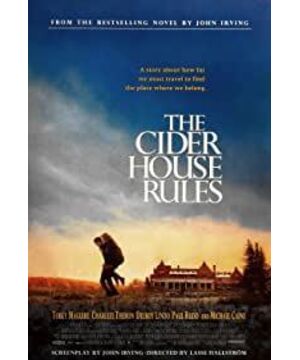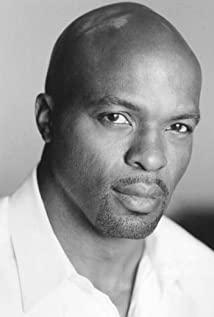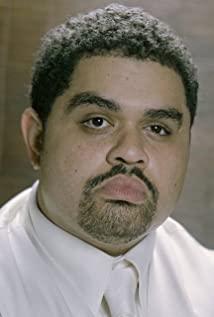This is a story that happened in an orphanage. "Good night, my Prince of Maine, the future King of England." The last sleeping spell of the day was the warmest words the old dean dedicated to the carefree orphans. This man in his 60s, an excellent surgeon who graduated from Harvard, built a castle of hope for his abandoned sons and daughters, and could give all kindness and love. The artwork he kept private in his life was the boy he regarded as his son. This boy, who was abandoned twice since he was a child, was given all the knowledge, morality and world he could by the old dean. The best pet. Like an inheritance, in the end, the young Homer finally inherited the wishes and responsibilities of the old dean. An orphan, who came to the world unexpectedly, was repeatedly abandoned and tyrannized, and finally in this world, was entrusted with a heavy responsibility, the things of the first twenty years became a fetter, quiet, became the owner of the castle, in the indifferent. There are fetters in the world, no longer chosen to be abandoned, and become the god of a group of children. This story is from birth to the end, but it tells about a period of time when Homer was a teenager. The two-line narrative is so gripping that both sides make readers curious, and it's not easy. Several letters, connecting Homer enjoying forbidden love, the pain of Ruth and his father, and the death of Fitz. Finally, the death of the old dean is the final act. The articulation and layer-by-layer progression are subtle and natural. Let's tell the story. There are only two scenarios in which the story takes place. The two main scenes are the orphanage and the apple orchard. The stories that happened are nothing more than: Main line: the good life of the orphanage, the second lieutenant and his fiancée have an abortion, the love between the young Homer and Candy (the seaside, the movie theater, the love segment), the incoherence of Ruth and his father, the death of Fitz, the old man The battle of wits and courage between the dean and the board of directors, and the death of the old dean are actually just the way the story is set and what happened. There is nothing special about it. But it mainly depends on how the director arranges and how the characters are created with many contradictions and distressing. It is difficult for us to remember the scenes and stories as simply as watching a suspense thriller. What makes us unforgettable is often a common emotion: such as the old dean's love for the children. Children yearn for a new home, have the expectations and pettiness of a new parent. Abortion or no abortion, respect and regret for life. Homer, who has tasted the forbidden fruit for the first time, treats love with seriousness, shock or hesitation. A father's possessiveness and an inexplicable love for his daughter. Ruth's desperation and fragility, like duckweed who can't choose her own destiny. Treating his own son, the old dean treats Homer's teacher's love, children are kind to all things, curious and cute The tenderness of the nurses and doctors in the love orphanage to the children is yes. We are often moved by these. The story is just a shell, he allows these emotions to ferment and grow tenderly in his arms, he nourishes all kinds of people and cruelly dismantles some people. We see many similarities and differences in our own lives and emotions from stories. This is the emotion that the sun always tells us. Let people be moved and healed after watching it, and then set off on the road again with the same heart for exploring the world. In fact, the more profound theme is hidden in the book "The Law of the Apple House". Only by reading this line can you truly understand Homer, not just substitute for making choices, not just experience emotions, but Experiencing what he has shown leads to thinking and questioning. Homer never wanted to dictate who's fate, with babies, with Candy. He did not naturally accept this imposed mission because of his medical skills. Although he is simple and has natural trust in the old dean, he will carefully consider whether it is a parent or a doctor, whether he really has the right to deprive his life. This is his awe and thinking about life, hesitant, and at the same time he has a bottom line and insists on what he wants to do. Until he witnessed the death of a pregnant woman because she did not seek medical attention in time, the worldview was impacted, and the iceberg began to crack a little. He would rather work at the Apple House than use medicine for more respectable work on a worldly level. In his eyes, this young man is like a blank sheet of paper, people are really equal and work is equal, and the bigger world outside is actually just a smile on the corner of his lover's mouth. Here, he let go of the doubts that had been haunting his heart and briefly enjoyed life. But the world is unpredictable, and the fate of a girl is always scattered in the world. In this world, as long as you pay a little attention, such things will be exposed in front of you, forcing people to deal with them. He was as hesitant as ever, and his fear of life and moral choice made him think for several days. However, the boy was still unable to resist his resentment. Although he looked quiet and introverted, he would also question the boss of the Apple House for the weak Ruth, a strong middle-aged black man who was agile, good at using knives, and several heads taller than him. . When the two were torn apart, he said the phrase "I can help you." This was his first real abortion. It was also the first time he faced his fears and chose the path he never wanted to face before. For the sake of friends, I also felt the inability of the girl, no longer condemned all men and women with the highest moral point, but with a more sympathetic view Wild, to really appreciate the emotion. This is teenage growth. He did one thing that he would never have done before. That's why Homer leaves Candy, and that's why he returns to the orphanage to inherit the unfinished wish of the old dean. This is a traceable history of juvenile growth.
View more about The Cider House Rules reviews











